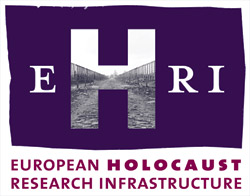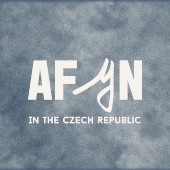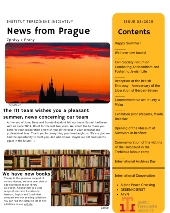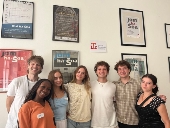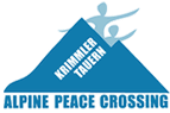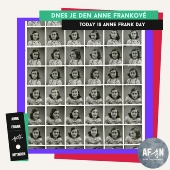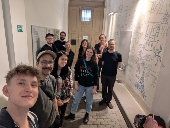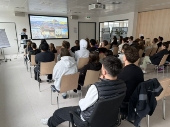Austrian Traces in Theresienstadt
With this project we, the Terezín Initiative Institute, would like to build a living bridge between the Czech Republic and Austria in order to shed light on an important part of our shared Central European history. We strive to fill the gaps in Holocaust education by developing teaching materials that reveal a hitherto hidden aspect of this dark period. Our aim is to deconstruct the idyllic image of a Jewish town propagated by the Nazis and to place Theresienstadt in the broader context of the Holocaust.
Materials for School Lessons
The teaching materials are also available free of charge in digital form.
Brochure
The first part describes the history of the ghetto and the Theresienstadt concentration camp in general, with a special focus on the Austrian traces. Questions are asked after each chapter to help students reflect on and deepen understanding of what they have read.
The second part contains original documents and their translations on the fate of Regina Machlupová. By examining these documents, the pupils should learn not only what information can be gleaned from the archives, but also gain an insight into Regina Machlupová's life.
On the final page, students can look forward to a poem by Leo Strauss, which he wrote during his time in Theresienstadt. This poetic depiction of a dark time asks students not only to consider the content of the poem, but also to reflect on the profound background. It offers a unique opportunity to engage with the emotions and experiences of people in difficult situations and to recognize humanity in the midst of horror.
Group work
The topic offers the opportunity to approach the fate of individuals by means of group work. Further information and descriptions can be found in the following document:
We recommend that you follow the enclosed guidelines when working with personal stories and testimonials. This also provides helpful information regarding possible questions.
As part of the group work, Regina Machlupová’s original documents of will be used and will be supplemented by the fate of Adéla Friedová.
In addition to Leo Strauss' text "Als-Ob", we would like to offer the writer Myra Gruhenberg-Strauss a well-deserved platform too. To this end, we present two texts which Gruhenberg-Strauss wrote during her time in Theresienstadt for the so-called "literary Strauss cabaret" and which are also suitable for interpretation as part of group work.
Helga Pollak's drawing can also be used for group work and interpretation.
Workshop
We also offer the option of coming to your school and holding a workshop on the topic. This can be tailored to your needs and interests. Everything is possible, from a general overview of the history of Austrian Jews in Theresienstadt to in-depth insights into individual fates. Our aim is to offer pupils an interactive and educational experience.
If you are interested, please contact Thomas Elmecker at thomas.elmecker@terezinstudies.cz.
This project was funded by the European Education and Culture Executive Agency and the National Fund of the Republic of Austria for Victims of National Socialism.


Three weeks have already passed since the International Youth Forum started in South Carolina, hosted by the Anne Frank Center at the University of South Carolina (USC). Our very own Ani from Afyn.cz was one of the delegates. She has shared her reflections on the experience, what she learnt, and what she will take away from it. Read her report to get a glimpse of the IYF 2025!
It's the middle of summer, and we're bringing you the latest issue of our newsletter, News from Prague. We wish you a wonderful rest of your vacation and enjoyable reading.
This week, a group of students from the US (some with Czech family ties) has visited us as part of their summer school in the Czech Republic organised by the Mestenhauser Institute for International Collaboration (MIIC).
Our GEDENKDIENST-Volunteer Laurenz joined the Alpine Peace Crossing (APC) in Krimml to cross the Austrian Alps in remembrance of the thousands of Jews who fled the antisemitism that was still rampant in Europe after 1945. Laurenz welcomed the team to Jachymka a few weeks ago.
Yesterday we celebrated Anne Frank's legacy in a creative way by showcasing the artworks submitted by talented contributors at Žižcafé Therapy.
On Saturday our GEDENKDIENST volunteer Laurenz welcomed the team of the Alpine Peace Crossing to Jachymka to show them our work.
Alpine Peace Crossing (APC) is an Austrian organization based in Krimml (Salzburg province).
Our Volunteer Laurenz was in Austria last week to promote the GEDENKDIENST program at his former school, the HAK 1 in Salzburg. Speaking to about 60 people from the 4th grade he talked about his experiences and encouraged the students to also use the opportunity to do a Gap-Year with a positive impact. Besides the remembrance work and the work and history of our institute, Laurenz told the students about the challenges and the many wonderful things that come with moving abroad and starting a new job fresh out of school.
We want to thank the HAK 1 business school in Salzburg for giving Laurenz the opportunity to promote the program and the students for their keen interest.






